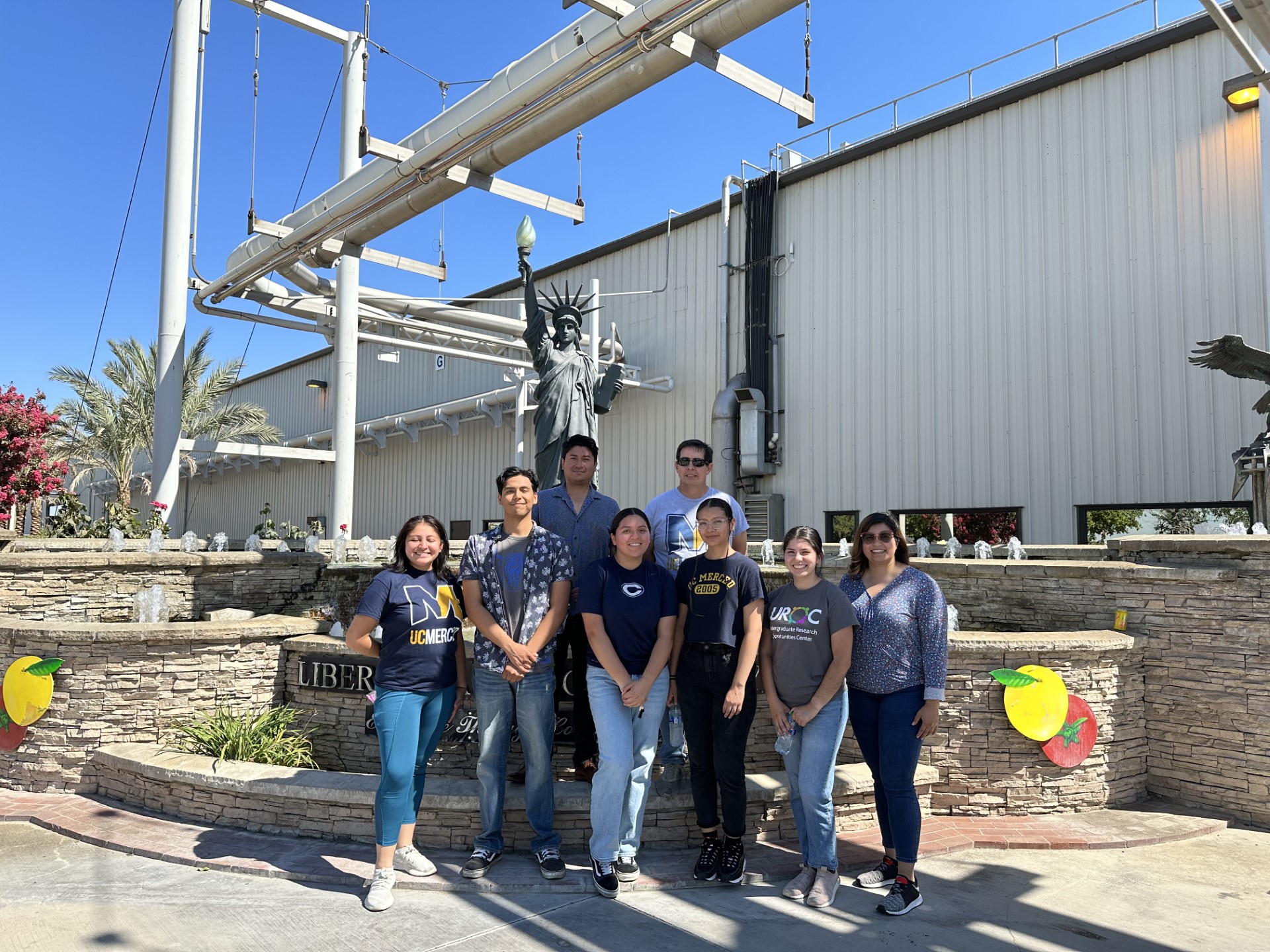March 14, 2024

Kimberly Sánchez is a 5 th year doctoral student in the Public Health Department. Her research aims to address the factors that contribute to nutrition-related health disparities in Latino and immigrant populations at the individual, social, and policy levels. Prior to starting the PhD at UC Merced, she was the first person in her family to obtain a college degree when she graduated from UC Merced with a triple major in Spanish, Public Health, and Psychology. She then moved back to her hometown of Los Angeles to complete her Master’s in Public Health from California State University, Long Beach.
Throughout this personal and educational journey, Kimberly learned that immigration status impacts overall health and that Mexican populations have lower diet qualities and are at risk of developing malnutrition, diabetes, hypertension, and obesity. She decided she wanted to continue learning more about the factors that impacted - and investigate solutions to improve - the diet quality of vulnerable populations. This motivated her to return to UC Merced to pursue a PhD in Public Health.
During her time in the PhD program at UC Merced, she has pursued this goal through research and community leadership. After obtaining the UC-CARE Fellowship, she conducted research on the nutrition environment of food pantries in California’s San Joaquin Valley. She published findings that showed that food pantries in the region did not provide healthy or culturally appropriate food options. Her dissertation study continues to advance this work through examination of culturally appropriate nutrition interventions for immigrants and childhood obesity prevention programs at the US-Mexico border and in Arizona. This research includes work with Binational Alliance for Transborder Community Health and Wellbeing (BATCH), a team of U.S.-Mexico researchers interested in border and Latino health of which Kim is a founding member. Kim and her colleagues have visited community centers to develop research partnerships in Hermosillo, Mexicali, and San Diego and have recently submitted an NIH grant to pilot an intervention in San Diego and Mexicali.
Kim has also been an active leader on campus. She has served as Secretary and President of the UC Merced Public Health Graduate Student Association. As President, she worked with the undergraduate Public Health Society to create a program to pair graduate student mentors with undergraduate mentees. She was motivated to start this program because of her own experiences navigating the hidden curriculum as a first-generation undergraduate student.
After graduating from UC Merced, Kim aims to become an Assistant Professor to advance her research on nutrition-related disparities and teach the next generation of public health professionals and researchers to increase diversity within the public health environment and workplace. She will continue to advocate for equitable access to healthier food.
Her advice to future public health students:
“Sometimes, the PhD journey may be difficult, but kind to yourself and embrace the journey. The PhD is a process of learning, and as public health researchers, we will continue learning even after we’re done with the program.”




